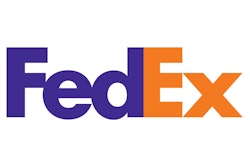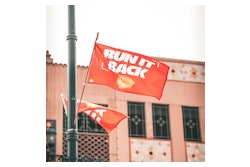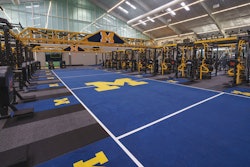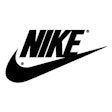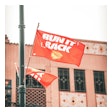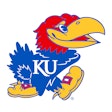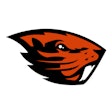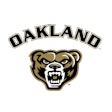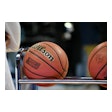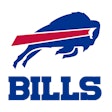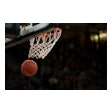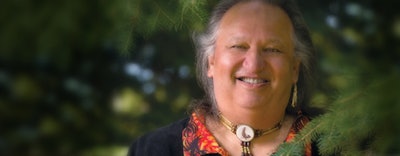
Though the stage was small and the performance run brief, Richie Plass has carried the pain of being a former Native American mascot for the past 52 years. Asked to dress in borrowed costume pieces — from a headdress down to made-in-Japan moccasins — and lead the Shawano (Wis.) High School basketball team onto the court as a student in 1968, Plass reluctantly complied, but it wasn't until he accompanied the "Indians" (now "Hawks") on a road trip that things got ugly. Today, Plass, a member of the Menominee and Stockbridge/Munsee tribes, appears at high schools, colleges, businesses and educational conferences across the country to tell his story, even showing up repeatedly at school board meetings in towns still clinging to their Native American marketing. In January, the Wisconsin Association of School Boards rejected the type of ban instituted in Washington, Oregon and Maine, and one Connecticut school's board of education voted in January to revert back to "Redmen" after changing to "Red Hawks" only last October. AB senior editor Paul Steinbach asked Plass to share his unique perspective on an issue that seemingly won't go away.
What happened when you took your high school mascot routine on the road?
We get down there, I come out of the locker room, and the whole gymnasium stood up and started to laugh. I kind of freaked, so I walked over and stood by the bleachers. Then they started to do that war cry thing from the old movies, you know? So I kind of backed up. Then they started yelling things at me, so I backed up some more. Little kids were coming up trying to grab stuff, and then I backed up some more. And then I specifically remember paper cups, orange peels, banana peels being thrown at me. I backed way up and that's when the guys on the top row started spitting on me. And then I ran into the locker room. Here come the coach and the principal. Of course, I'm pretty upset and I'm crying. "I said, 'I told that was going to happen. So I'm not going to do it anymore.' " That was the winter of 1968. I made my first public speech in the summer of 1969, and I've been advancing it ever since. And I can say with confidence that what I went through 52 years ago, my grandchildren and other children are still going through the same thing. To my opinion, even more so.
Why do you think this has dragged on?
There are three reasons why it's still happening and why people seem to get away with it: arrogance, fear and money. Arrogance explains itself. It's just white people saying, "They're just Indians, and we can do that. There aren't many Indians left. We got rid of them." Fear, because a lot of people don't want to know the truth, because then they'd have to make change. And money. "Oh, it's going to cost us money." Or, "How much money can we make off our mascot that's honoring people?" In Menomonee Falls (Wis.), probably the dumbest statement I heard was a guy from the school board who said right out, "We own that name." So, it's like — wow. Here we are, real Menominee, and we're told we're nonexistent, and that a group of white people near Milwaukee own our name.
Does it strike you as ironic when a town talks about its traditions as being more important than the native people's traditions?
It's not only ironic — it's ignorant. Berlin, Wisconsin. The Berlin Indians. I was at five or six of their school board meetings. I said, "Hey, I did some research. A lot of people around here are of German descent. Why don't you honor your own kind? Call yourselves the Berlin Goose Steppers. Leave us alone." They said, "Well, we're honoring Indians." I said, "I'm Menominee. We're not honored." They said, "You're not from here, so you have no say."
Is it possible for Native Americans to be honored in certain situations?
If they choose the name themselves. Two things about Florida State that I always tell people. The Seminole from Florida who were removed from the Trail of Tears who are still in Oklahoma to this day have yet to sign their allegiance with the United States, and they hate it. They want nothing to do with it.
They want nothing to do with the United States or the Florida State situation?
Both. Now, Central Michigan University is called the Chippewas, and what's unique there is for years and years, through the university's initiative, they actually have the Chippewa people on staff, a lot of the classes are geared toward their culture and their history and their heritage, and then they have the support, as such, from the people to use that name. When I see things like that happening, when the native people see the involvement, see the acceptance and the work, I just step back.
Step back, or do they have your full endorsement?
Oh, yeah. Even today, I have friends I grew up with and family members who tell me I'm wasting my time — that they don't see anything wrong with those names. And I never take it away from them. Never do. I don't have the right to tell them they're right or wrong. When they say, "I don't agree with you — I like that stuff," I just respond this way: "Well, then if you don't have a problem being laughed at, having food thrown on you and being spit on, because you're showing your honor, that's all you. I don't think that's honor."
When you see and hear Kansas City Chiefs fans or Atlanta Braves fans do the "tomahawk chop," what goes through your mind?
I laugh. I shake my head. Twice a year I go to a national conference for high school students in journalism, and last year in Anaheim, I stopped my presentation and looked at my watch. I said, "Oh, hey. I'm really sorry. I've been talking for 20 minutes already. I really have to apologize." And I started doing the tomahawk chop and yelling that chant. All these kids looked at me surprised, and I went, "What's the matter? That's what the media says we do, so I need to apologize because I didn't do it." That's how I think about that.
Do you see a day when fans of professional teams will stop doing the "chop" and the Washington Redskins will go by a different nickname?
There's been a lot of gain in the past 50 years. A lot of things have changed, so you never know. I probably won't be alive to see it, but I sure hope it does happen. I really do.
This article originally appeared in the April 2020 issue of Athletic Business with the title "Native American shares personal experience as mascot." Athletic Business is a free magazine for professionals in the athletic, fitness and recreation industry. Click here to subscribe.















